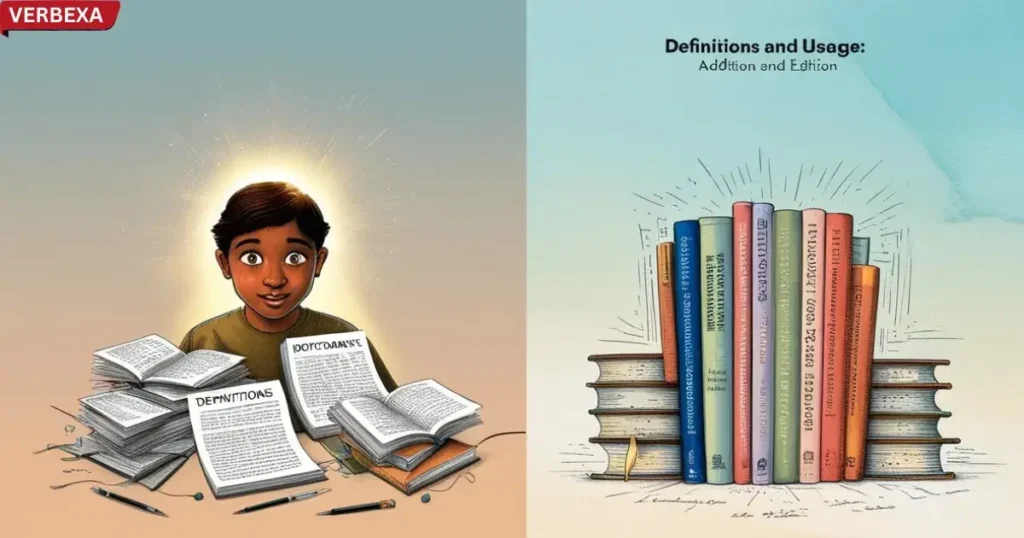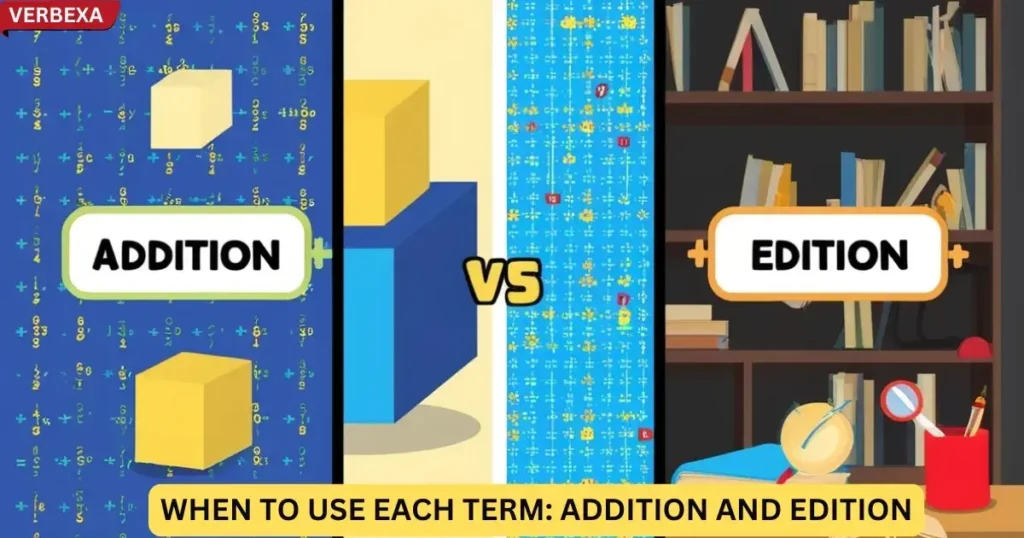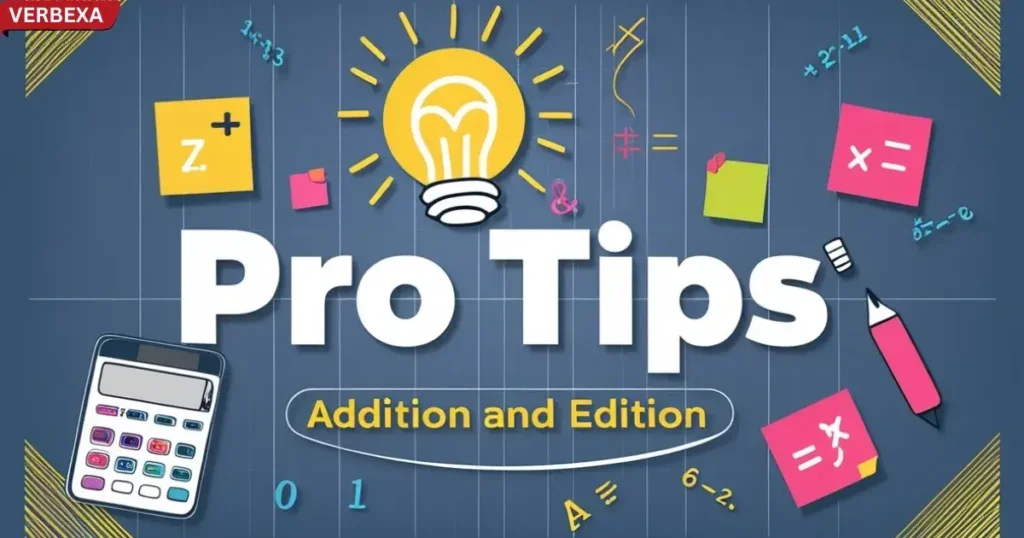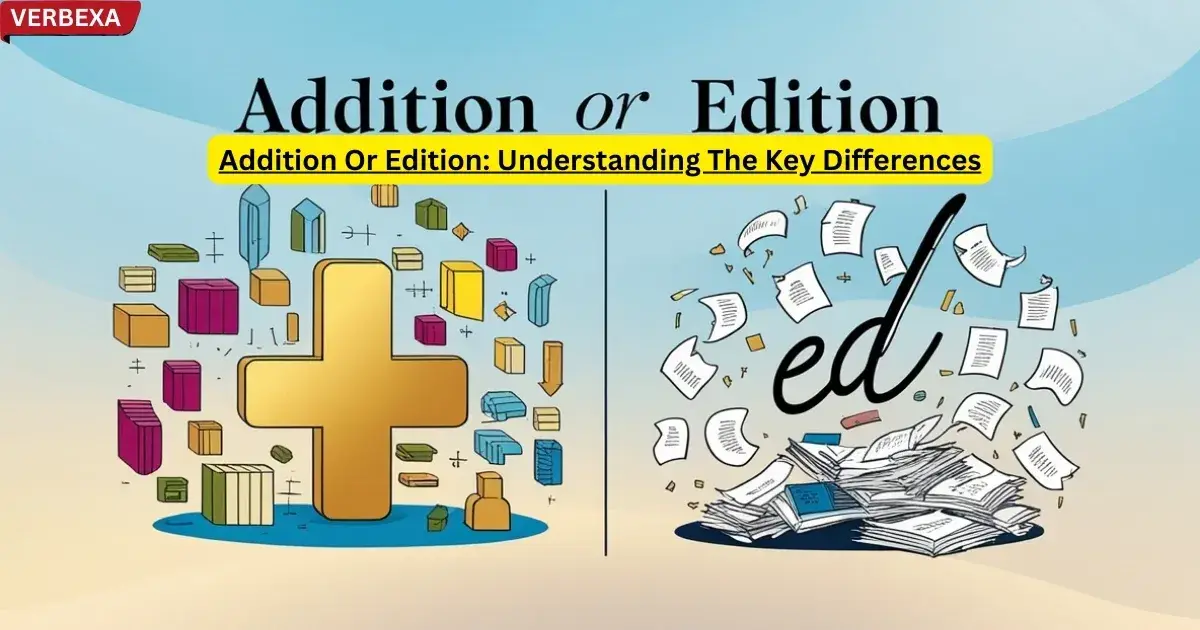In the vast landscape of the English language, certain words can create confusion even for the most seasoned writers and speakers. Addition or edition are two such terms that often leave people scratching their heads, wondering which one to use in a given context.
Whether you’re writing a professional document, crafting an academic paper, or simply trying to communicate effectively, understanding the nuanced difference between addition and edition can elevate your linguistic precision.
These moments highlight the critical importance of distinguishing between these seemingly similar yet fundamentally different words.
Definitions and Usage: Addition and Edition

Addition
Addition primarily refers to the act of adding something to an existing entity or group. In mathematical terms, it means combining numbers to create a sum. In everyday language, addition implies an increase, enhancement, or inclusion.
Examples of addition:
- The addition of a new team member significantly improved our project’s productivity.
- Her recent addition to the family brought immense joy to the household.
- The addition of new software features enhanced the application’s functionality.
Edition
Edition specifically relates to a particular version or release of a published work. It typically applies to books, magazines, newspapers, and other printed or digital materials that undergo revisions or updates.
Examples of edition:
- The first edition of the novel quickly became a collector’s item.
- Today’s evening edition of the newspaper covers breaking news.
- The special collector’s edition of the DVD included exclusive behind-the-scenes content.
Synonyms
Addition Synonyms:
- Supplement
- Increment
- Augmentation
- Extension
- Accession
- Increase
- Expansion
- Complement
- Attachment
- Inclusion
Edition Synonyms:
- Version
- Issue
- Release
- Publication
- Number
- Series
- Volume
- Impression
- Variant
Comparison Table: Addition vs Edition
| Aspect | Addition | Edition |
|---|---|---|
| Definition | Act of adding or joining | Specific version of a published work |
| Common Context | Mathematical, group dynamics | Publishing, media |
| Usage Example | Adding numbers, team members | Book releases, newspaper prints |
| Grammatical Role | Noun describing increase | Noun describing version |
When to Use Each Term: Addition and Edition

Using “Addition”
- When describing something new being included
- In mathematical calculations
- Referring to an increase or enhancement
- Describing a new member or component
Using “Edition”
- Discussing published works
- Referring to specific versions of books, magazines
- Describing numbered or updated releases
- Talking about media publications
Everyday Usage Examples
Addition Examples:
- The newest addition or edition to our garden is a beautiful rose bush.
- Her latest addition or edition to the family is an adorable puppy.
Edition Examples:
- I purchased the limited edition of the photography book.
- The newest addition or edition of the scientific journal arrived this morning.
Common Mistakes to Avoid
- Incorrect: The latest addition or edition to our neighborhood.
- Correct: The latest addition to our neighborhood.
- Correct: The latest edition of our neighborhood newsletter.
Pro Tips

- Remember: Addition involves adding something.
- Edition involves a version of something published.
- Context is key in choosing between these terms.
Conclusion
Understanding the difference between addition or edition is more than a grammatical nuance—it’s about communicating with clarity and precision. Addition represents an increase or inclusion, while edition signifies a specific version of a published work.
Whether you’re discussing a new addition or edition to a project, family, or publication, you’ll now do so with confidence and linguistic accuracy.

This author is a passionate linguist and grammar enthusiast, dedicated to helping individuals master the art of language. With years of experience in teaching and editing, she brings clarity and precision to every sentence. Tina’s mission is to empower writers of all levels to express themselves with confidence and excellence.

